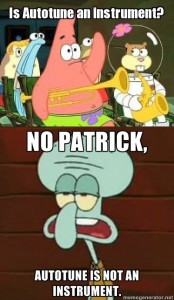I raised my voice in a conversation the other day with a friend’s grandfather when he started talking about his recently acquire hearing aid (it was obvious he really did have difficulty hearing). Then he adjusted the volume on the hearing aid, as he mentioned its miraculous nature, and got me thinking about such a helpful technology which most people seldom take notice of. Everyday new forms of technology force us to take notice of them; we cannot escape them. So frequent we come across them we don’t even realize many of the other forms of smaller, but still useful, technologies that have been developed, and improved, to help people in their daily lives: like hearing aids. The Center for Hearing and Communication reports that 1 in 3 people over the age of 65 have some degree of hearing loss. So, most-likely, each one of us knows someone currently using a hearing aid, but many people may not know just how significantly hearing aids have been improved since they first came to market in 1987, particularly in the past 2-3 years, in various ways to identify and amplify desired sounds like the human voice while muting background noise. On top of the newer, aesthetically-pleasing, choice between from behind-the-ear (BTE) to completely-in-the-canal (CIC) variations of hearing aids, recently there have been significant improvements that are listed below.

1. Increased Comfort
Related to the introduction of Digital Signal Processing (DSP), one of the primary benefits is the potential for increased audibility of sounds of interest without discomfort resulting from high intensity sounds. The greatly increased flexibility and control of compression processing provided by DSP can lead to improved audibility with less clinician effort. Expansion, the opposite of compression, has also been introduced in digital hearing aids. This processing can lead to greater listener satisfaction by reducing the intensity of low-level environmental sounds and microphone noise that otherwise may have been annoying to the user, thus it grants your loved one using this more of an enjoyable experience when they try listening to you speak.
2. Improved Sound
Digital Feedback Reduction (DFR), the first factor in improving a user’s sound reduces moderate feedback through the use of a cancellation system or notch filtering. DFR can substantially benefit users who experience occasional interfering feedback, such as that associated with jaw movement and close proximity to objects.
Digital Noise Reduction (DNR), the second factor which improves sound, is a processing intended to reduce gain, either in the low frequencies or in specific bands, when noise is detected. The DNR reduces annoyance and possibly improve speech recognition in the presence of non-fluctuating noise. All in all these two improvements can enhance the listening experience for any hearing aid wearer.
3. Improved Speaking
Another new accomplishment is Digital Speech Enhancement (DSE); these systems act to increase the relative intensity of some segments of speech. Current DSE processing identifies and enhances speech based either on temporal, or more recently, spectral content. DSE in hearing aids is still relatively new, but its effectiveness is large.
Also, the ability of directional hearing aids to improve the effective signal-to-noise ratio has become well established. In some cases combining DSP (mentioned earlier) with directional microphones can act to further enhance this benefit. In some hearing aids DSP is used to calibrate microphones, control the shape of the directional pattern, automatically switch between directional and omnidirectional modes, and reduce additional circuit noise generated by directional microphones. All of these combine to produce well processed sound and capability to increase accuracy of not only hearing, but speaking as well (seeing as speaking is basically hearing yourself)
Cites:
http://www.chchearing.org/about-hearing-loss/facts-about-hearing-loss
http://www.asha.org/public/hearing/treatment/digital_aid.htm
http://usatoday30.usatoday.com/news/health/story/health/story/2012-03-16/Hearing-aids-revolutionized-by-sound-advances-in-technology/53571198/1











